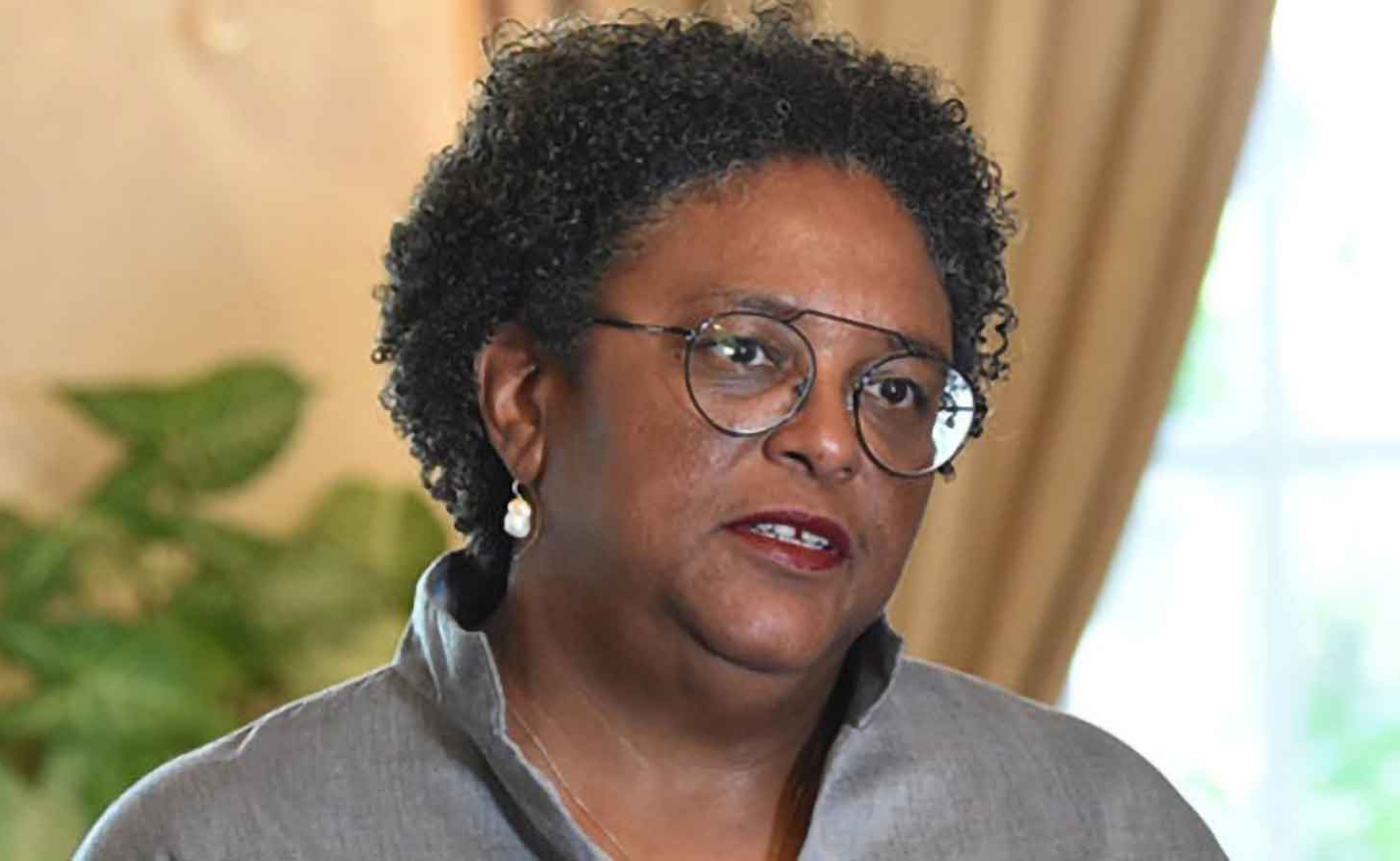CARICOM | Caribbean Charts Survival Course: Mottley's Four-Point Plan to Counter Trump Trade War"

BRIDGETOWN, Barbados, April 5, 2025 - Caribbean Community Chair Mia Mottley has unveiled a bold four-point strategy to shield the region from the economic tsunami threatening to crash upon its shores following U.S. trade policies.
The Barbados Prime Minister's plan offers a roadmap for survival as global trade tensions intensify under the Trump administration."We must build our ties with Africa, Central and Latin America, and renew those ties with some of our older partners around the world," Mottley declared, placing diversification of trade partnerships at the forefront of her vision.
Her strategy aims to liberate Caribbean economies from their historical dependence on American markets—a vulnerability she described as "a legacy of our colonial dependence."
“ We must build our ties with Africa, Central and Latin America, and renew those ties with some of our older partners around the world ”
The call for expanded partnerships reflects a recognition that the region can no longer afford to "rely solely on one or two markets." Instead, Mottley envisions Caribbean goods flowing to "a wider, more stable global market," creating resilience against the vicissitudes of U.S. trade policy.
Agricultural self-sufficiency forms the second pillar of Mottley's strategy, with the existing "25 by 2025" initiative—aimed at reducing food imports by 25%—now appearing "too modest" given current circumstances. "We must grow our own and produce our own as much as possible," she insisted, challenging the region to transform crisis into opportunity through increased local production.
Her clarion call—"buy local and buy regional"—resonated as both economic strategy and cultural affirmation. "The products are better, fresher and more competitive in many instances," she argued, framing consumer choices as acts of regional solidarity in the face of external pressure.
Regional unity stands as the third element of the plan, with Mottley warning against the temptation to "fight among each other for political gain" when collective action represents the only viable defense.
"United, we stand and divided, we fall," she reminded her audience, invoking wisdom that transcends borders and political divides.
The strategy concludes with a direct appeal to Washington—specifically to President Trump—emphasizing the asymmetry of the relationship between the United States and its Caribbean neighbors. "We are not your enemy. We are your friends," Mottley stated plainly, highlighting the deep familial bonds that connect Caribbean people to American soil.
"Our economies are not doing your economy any harm in any way," she continued, cutting through diplomatic niceties with mathematical clarity. "They are too small to have any negative or distorted impact on your country." The message was unmistakable: punishing the Caribbean serves no American interest.
“ To our hoteliers, our supermarkets and our people, my message is the same. Buy local and buy regional. I repeat, buy local and buy regional. The products are better, fresher and more competitive in many instances. ”
This strategic pivot comes at a critical moment for the region. "Our world is in crisis," Mottley acknowledged earlier in her address. "These are among the most challenging of times for our region since the majority of our members gained their independence."
The looming specter of a global trade war, particularly between the United States and China, stands to deliver a crushing blow to Caribbean nations whose economic veins pulse with imported goods.
Mottley warned that proposed tariffs—including a potential $1-1.5 million levy on Chinese-made ships entering U.S. harbors—would cascade through the region's economy like a hurricane, leaving no island untouched.
"Higher prices at the corner shop, higher prices at the supermarket, higher prices at the electronic store," Mottley enumerated, her words reaching beyond policy circles to ordinary citizens who might dismiss global trade tensions as distant thunder. "If you buy food, if you buy electronics, if you buy clothes, it will impact you. It will impact each of us."
The timing couldn't be worse. The Caribbean, still nursing wounds from pandemic-shattered supply chains and a relentless cost-of-living crisis, now faces this fresh economic tempest. With economies "small and vulnerable," traditional defensive measures like tariff reductions would prove futile—like bailing a sinking ship with a teacup.
To our hoteliers, our supermarkets and our people, my message is the same. Buy local and buy regional. I repeat, buy local and buy regional. The products are better, fresher and more competitive in many instances. ”
Tourism, the life raft for many regional economies, also sits in the crosshairs. As economic conditions deteriorate in source markets, travelers' ability to indulge in Caribbean getaways may evaporate like morning mist. Mottley's call for an "immediate tourism strategy" underscores the urgency of securing this vital economic lifeline.
Throughout her address, Mottley wove a thread of resilience into the fabric of her warnings. "In every global political and economic crisis, there is always an opportunity," she noted, positioning her four-point plan as the key to weathering the storm.
As Mottley concluded, she drew strength from historical perspective. "Our forefathers faced tribulations far worse than we will ever do," she reminded her audience, her words bridging past struggles with present challenges. "We can make it. We shall make it."
With trouble brewing in Caribbean waters, Mottley's message was clear: through diversification, self-sufficiency, unity, and diplomacy, the region will chart its own course through the coming storm, with its people serving as both compass and crew.
-30-
